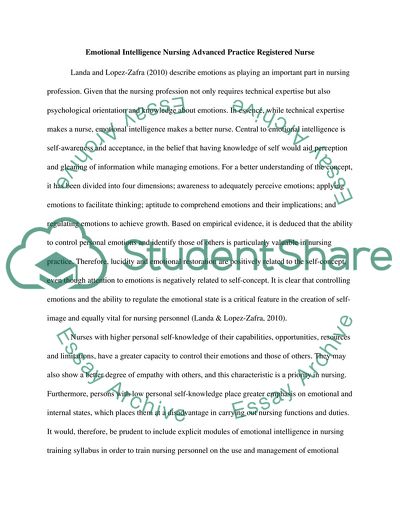Emotional intelligence nursing Essay Example | Topics and Well Written Essays - 500 words. https://studentshare.org/nursing/1828071-emotional-intelligence-in-nursing-advanced-practice
Emotional Intelligence Nursing Essay Example | Topics and Well Written Essays - 500 Words. https://studentshare.org/nursing/1828071-emotional-intelligence-in-nursing-advanced-practice.


